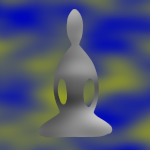Dear Friends,
In the progression of discussing sati, mindfulness, so far, Gil has laid out a progression: we wake up to the present moment; we develop clear recognition of what is happening in the moment; we learn skills to sustain this recognition through time and observe the flow of experience without adding stories.
Gil’s next step in the progression is that as we observe the flow: “We start seeing things arising and passing, coming and going, seeing things change. That change is not only the change of external phenomena, but there is a wonderful interplay between the changing nature of what we notice, and the changing nature of what is happening.” A bit later, he adds, “As the observation factor of mindfulness gets deeper and deeper, the mind switches from the story line, or the concept line of thinking about things to observing the changing flow of phenomena.”
https://www.audiodharma.org/talks/11131
Gil answers an important question in his talk: why do this? I appreciate his answer for the balance he is highlighting in practice:
There are times of stepping away followed by times of stepping in — times of withdrawal and times of return. Meditation is like that. It’s a time of stepping away from everyday life so that we can return in a different way … to return with freedom where we are not clinging or attached to things. We return with ease, openness, happiness, settledness, and a greater capacity for heart qualities — a greater capacity to care for the world with compassion, kindness, friendliness, empathy, appreciation, and delight for the goodness around us.
As you engage in reflection or meditation on this topic, I find it useful to remember this why. That this stepping away has the potential to enable us to return to our lives with greater ease, happiness, and care — not in a forceful way, but rather as a gradual and natural process of letting go of the rigid ways we often think of ourselves and the world, and releasing into this flow of experience.
Poem/Reflection:
This poem from Robert Frost highlights the ephemerality we can observe in the world. If you can find a few minutes today to connect with nature (e.g. could be by going outside or being with a houseplant), can you sense how “nothing gold can stay”?
Nothing Gold Can Stay
Nature’s first green is gold,
https://poets.org/poem/nothing-gold-can-stay
Her hardest hue to hold.
Her early leaf’s a flower;
But only so an hour.
Then leaf subsides to leaf.
So Eden sank to grief,
So dawn goes down to day.
Nothing gold can stay.
Meditation:
Here is a guided meditation from Kim Allen, where we are invited to attend to body sensations as a way of a becoming attuned to impermanence and change (29 minutes):
https://www.audiodharma.org/talks/15270
With good wishes,
Andrea
